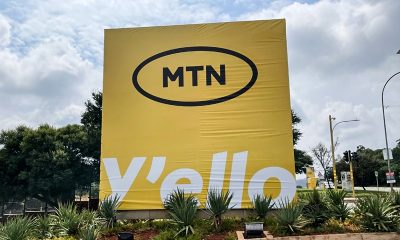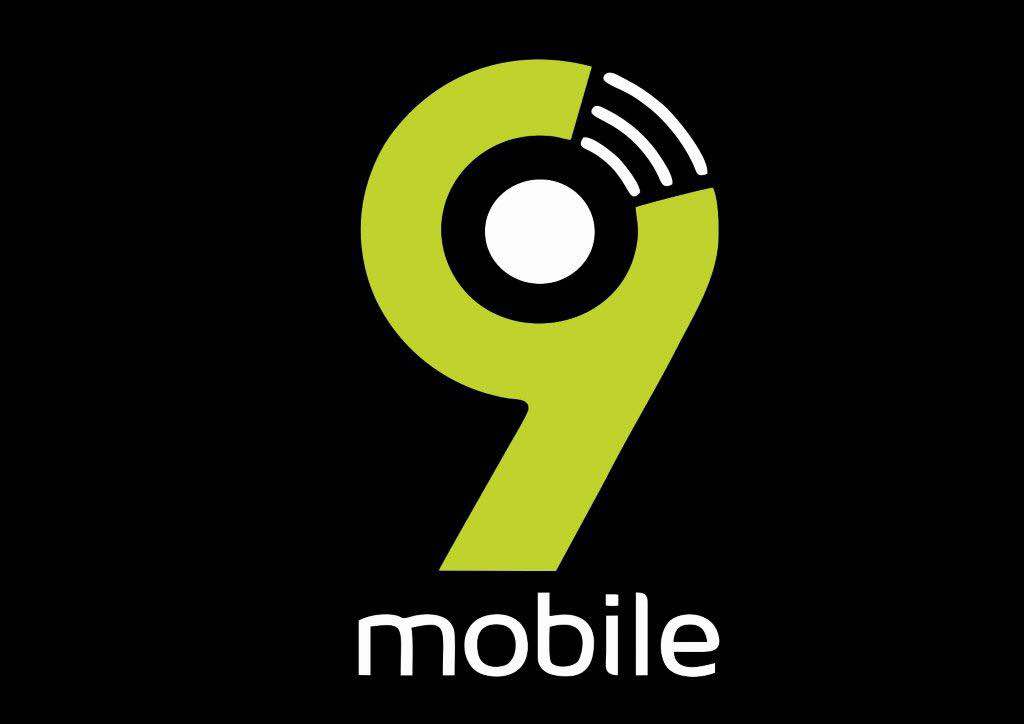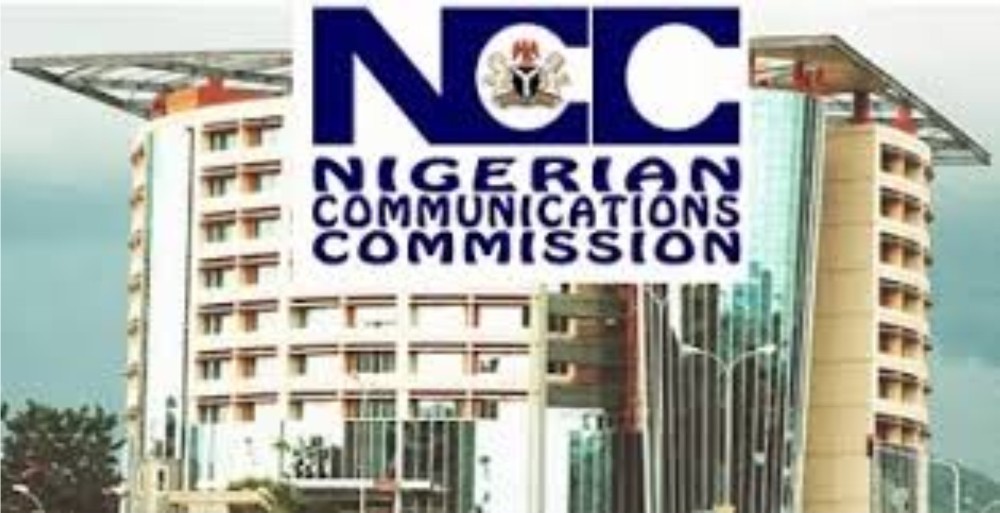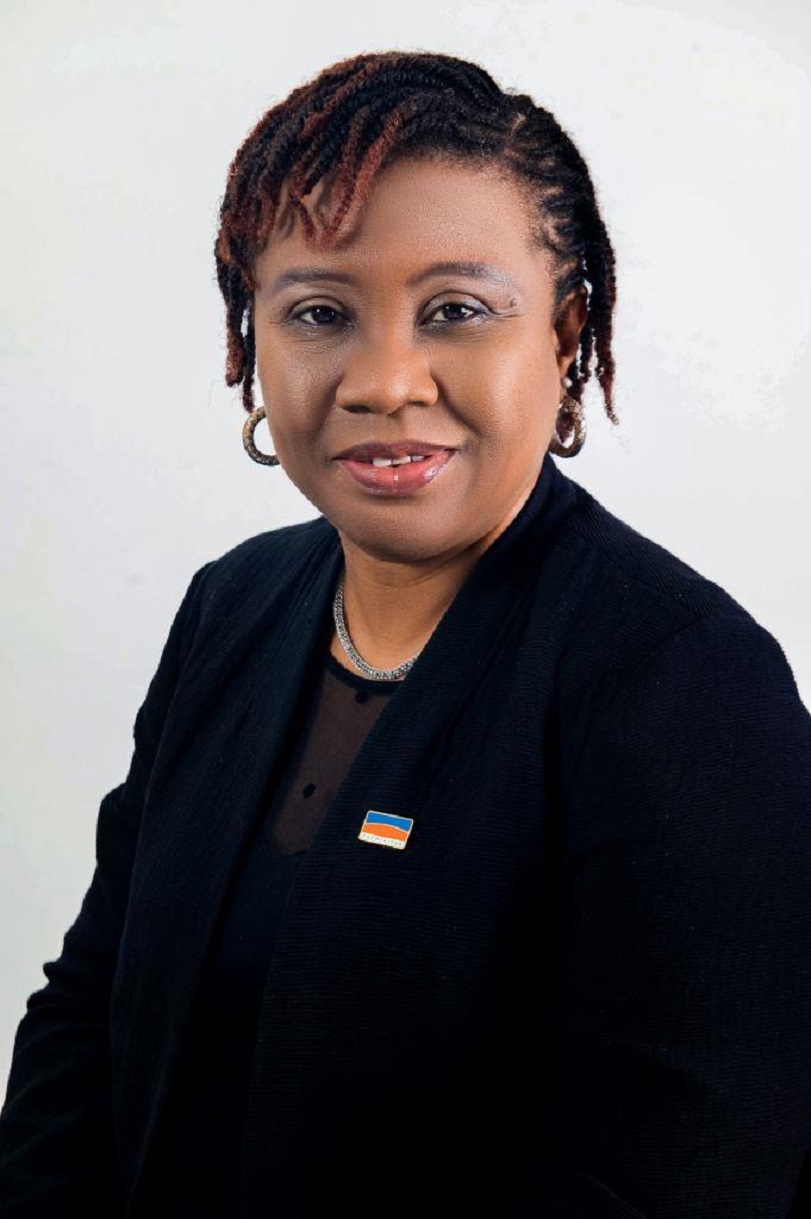Technology
9mobile Sale: Why Glo May Finally Lose Out
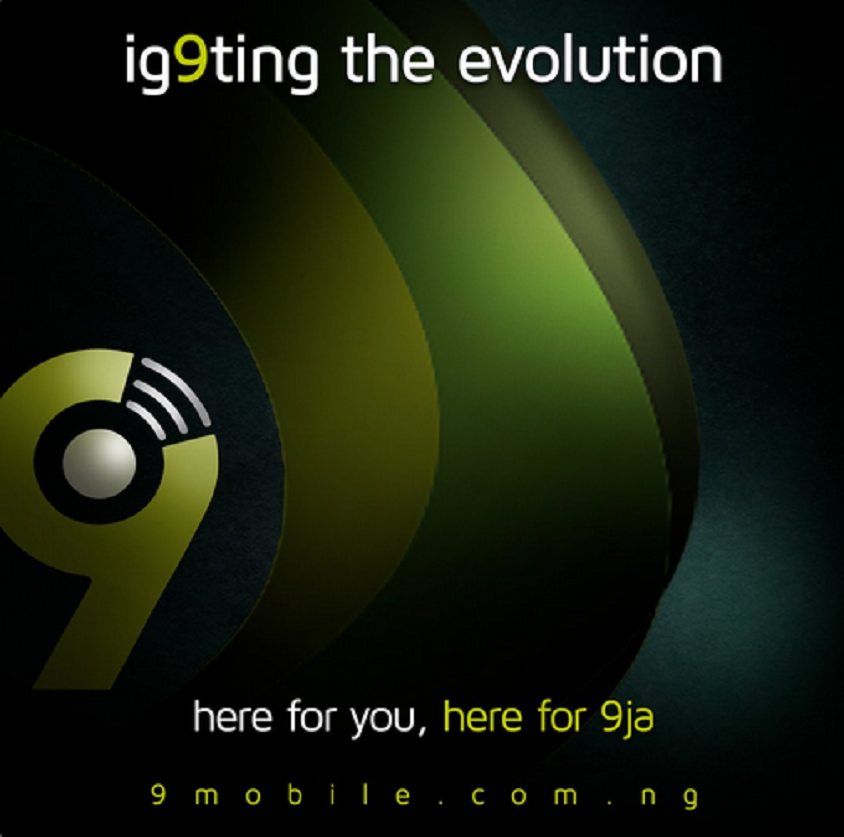
By Dipo Olowookere
There are strong indications that Globacom, one of the four GSM service providers in Nigeria, may not be given the nod to acquire the troubled 9mobile, one of the mobile phone operators in the country.
9mobile, formerly Etisalat Nigeria, is desperately in need of a new investor after it was taken over in July 2017 following a N541 billion debt.
The telecoms firm obtained a syndicated loan from 13 Nigerian banks and after it failed its repayment plan, the lenders attempted to take over the company, but the Nigerian Communications Commission (NCC) and the Central Bank of Nigeria (CBN) prevented this.
After the regulators took over Etisalat Nigeria, Mubadala Group, the major investor from the United Arab Emirates, pulled out of the firm and said its brand name must not be used any longer, leading to the birth of 9mobile weeks later.
Barclays Africa, an arm of the Barclays Group, was appointed to shop for a new buyer of 9mobile and five companies have emerged the top bidders.
The firms are Bharti Airtel, an Indian telco that owns Airtel Nigeria; Globacom, the Nigerian company owned by Mike Adenuga Jnr; Teleology Holdings Limited, promoted by Adrian Wood, the pioneer CEO of MTN Nigeria; Smile Telecoms Holdings, a telco operating in Nigeria, Tanzania, Uganda, Congo DR and South Africa; and Helios Investment Partners LLP, an investment company.
According to a report by The Cable, Globacom desperately wants to acquire 9mobile, but it would take a miracle for this to happen.
This, according to the report, is because Glo does not have the financial muscle to revive 9mobile, which hopes to clear its debt with the banks.
“It is public knowledge that 9mobile is in dire need of real financial injection because of the debts, as well as a strong governance culture in view of its recent history.
“Glo is not the most financially buoyant to revive 9mobile, neither does it have the best-practice governance culture that 9mobile requires. Adenuga runs Glo like a kiosk or corner shop, and this cannot help the situation of 9mobile,” the insider was quoted as saying by TheCable.
However, it was gathered that Mr Adenuga desperately wants to acquire the telco and this is to claim the bragging rights of the largest telecom company in Nigeria.
Glo is currently the second largest operator in Nigeria with 37 million voice and 26.8 million internet subscribers, according to the October 2017 statistics from the NCC.
If it acquires 9mobile, it will automatically become the biggest network in Nigeria by adding 17 million to voice and 11.5 million to internet subscription base, he hopes.
Combined, the new entity’s 54 million voice lines and 38.3 million internet subscriptions will surpass MTN Nigeria’s 50.7 million and 32.5 million respectively.
“This, in sum, is why Adenuga wants 9mobile badly, despite the serious challenges Glo itself is facing in its business model,” the source said.
Glo would move from its 26.4% share of the market to 38.5%, including the benefit of recording more subscribers porting to its network.
Mr Adenuga’s company currently has the lowest number of gains from porting — an average of less than 1,000 per month — while 9mobile recorded a monthly average of 12,000 porting subscribers in 2017, industry’s highest by a distance, the journal reports.
Although the transaction is being handled by Barclays Africa, an arm of the Barclays Group, the telecom regulator, NCC, and the banking watchdog, CBN are expected to play a key role in the final decision.
NCC controls 9mobile’s operating licence while CBN regulates the banks. Both intervened to save 9mobile when it was going down.
The involvement of CBN and NCC, which had previously complained about “lack of transparency” by Barclays in the transaction, is not likely to do Mr Adenuga any favours.
However, Globacom remains confident that it would win the bid.
“Dr Mike Adenuga Jnr is never tired of pushing for improvement. Globacom boasts of arguably the most inspired and most passionate workforce in the industry.
We have the edge,” an insider told TheCable, refusing to be named because of internal rules.
Glo is the second national operator (SNO), licensed to provide national backbone for other networks as well as roll out landlines across the country.
“Since Adenuga got the SNO licence in 2003, he has not yet fulfilled the conditions of the licence. This is 14 years and counting,” a senior government official told TheCable on the condition that he would not be named.
“By now, it should have rolled out landlines nationwide and provided broadband access to millions of homes. The huge benefits to the economy have been lost over time. The notion that Globacom can get such an important licence and refuse to fulfill the conditions is unacceptable.”
Globacom was recently kicked out of the Republic of Benin after failing to meet conditions for the renewal of its licence, despite the fact that it took years for the company to roll out its service as a result of regulatory requirements.
The telecom company’s services in Ghana are also not well rated.
Technology
Expert Reveals Top Cyber Threats Organisations Will Encounter in 2026

By Adedapo Adesanya
Organisations in 2026 face a cybersecurity landscape markedly different from previous years, driven by rapid artificial intelligence adoption, entrenched remote work models, and increasingly interconnected digital systems, with experts warning that these shifts have expanded attack surfaces faster than many security teams can effectively monitor.
According to the World Economic Forum’s Global Cybersecurity Outlook 2026, AI-related vulnerabilities now rank among the most urgent concerns, with 87 per cent of cybersecurity professionals worldwide highlighting them as a top risk.
In a note shared with Business Post, Mr Danny Mitchell, Cybersecurity Writer at Heimdal, said artificial intelligence presents a “category shift” in cyber risk.
“Attackers are manipulating the logic systems that increasingly run critical business processes,” he explained, noting that AI models controlling loan decisions or infrastructure have become high-value targets. Machine learning systems can be poisoned with corrupted training data or manipulated through adversarial inputs, often without immediate detection.
Mr Mitchell also warned that AI-powered phishing and fraud are growing more sophisticated. Deepfake technology and advanced language models now produce convincing emails, voice calls and videos that evade traditional detection.
“The sophistication of modern phishing means organisations can no longer rely solely on employee awareness training,” he said, urging multi-channel verification for sensitive transactions.
Supply chain vulnerabilities remain another major threat. Modern software ecosystems rely on numerous vendors and open-source components, each representing a potential entry point.
“Most organisations lack complete visibility into their software supply chain,” Mr Mitchell said, adding that attackers frequently exploit trusted vendors or update mechanisms to bypass perimeter defences.
Meanwhile, unpatched software vulnerabilities continue to expose organisations to risk, as attackers use automated tools to scan for weaknesses within hours of public disclosure. Legacy systems and critical infrastructure are especially difficult to secure.
Ransomware operations have also evolved, with criminals spending weeks inside networks before launching attacks.
“Modern ransomware operations function like businesses,” Mitchell observed, employing double extortion tactics to maximise pressure on victims.
Mr Mitchell concluded that the common thread across 2026 threats is complexity, noting that organisations need to abandon the idea that they can defend against everything equally, as this approach spreads resources too thin and leaves critical assets exposed.
“You cannot protect what you don’t know exists,” he said, urging organisations to prioritise visibility, map dependencies, and focus resources on the most critical assets.
Technology
NCC Begins Review of National Telecommunications Policy After 26 Years

By Adedapo Adesanya
In a consultation paper released to the public, the commission said it is seeking input from stakeholders, including telecom operators, tech companies, legal experts, and the general public, on proposed revisions designed to reposition Nigeria’s telecommunications framework to match current digital demands. Submissions are expected by March 20, 2026.
The NTP 2000 marked a turning point in Nigeria’s telecom landscape. It replaced the 1998 policy, introducing full liberalisation and a unified regulatory framework under the NCC, and paved the way for the licensing of GSM operators such as MTN, Econet (now Airtel), and Globacom in 2001 and 2002.
Prior to the NTP, the sector was dominated by Nigerian Telecommunications Limited (NITEL), a government-owned monopoly plagued by obsolete equipment, low teledensity, and poor service. At the time, Nigeria had fewer than 400,000 telephone lines for the entire country.
However, the NCC noted that just as the 1998 policy was overtaken by global developments, the 2000 framework has become structurally misaligned with today’s telecom reality, which encompasses broadband, 5G networks, satellite internet, artificial intelligence, and a thriving digital economy worth billions of dollars.
“The rapid pace of technological change and emerging digital services necessitate a comprehensive update to ensure the policy continues to support economic growth while protecting critical infrastructure,” the Commission stated.
The review will target multiple chapters of the policy. Key revisions include: Enhancements on online safety, content moderation, digital services regulation, and improved internet exchange protocols; a modern framework for satellite harmonisation, coexistence with terrestrial networks, and clearer spectrum allocation to boost service quality, and policies to address fiscal support, reduce multiple taxation, and lower operational costs for operators.
The NCC is also proposing entirely new sections to the policy to address emerging priorities. Among the key initiatives are clear broadband objectives aimed at achieving 70 per cent national broadband penetration, with a focus on extending connectivity beyond urban centres to reach rural communities.
The review also seeks to formally recognise telecom infrastructure, including fibre optic cables and network masts, as Critical National Infrastructure to prevent vandalism and enhance security.
In addition, the commission is targeting the harmonisation of Right-of-Way charges across federal, state, and local governments, alongside the introduction of a one-stop permitting process for telecom deployment, designed to reduce bureaucratic delays and lower operational costs for operators.
According to the NCC, the review aims to make fast and affordable internet widely accessible. “The old framework was largely voice-centric. Today, data is the currency of the digital economy,” the commission said, highlighting the need to close the urban-rural broadband divide.
The consultation process is intended to gather diverse perspectives to ensure the updated policy reflects current technological trends, market realities, and consumer needs. By doing so, the NCC hopes to maintain the telecommunications sector’s role as a key driver of economic growth and digital inclusion.
Technology
FG to Scrutinise MTN’s $2.2bn Full Take Over of IHS Towers

By Adedapo Adesanya
The Minister of Communications, Innovation and Digital Economy, Mr Bosun Tijani, says the Nigerian government is assessing MTN Group’s acquisition of IHS Towers to ensure the deal aligns with Nigeria’s telecommunications development goals.
On Tuesday, MTN Group said it has agreed to acquire the remaining 75.3 per cent stake in IHS Holding Limited in an all-cash deal valued at $2.2 billion. The deal will be funded through the rollover of MTN’s existing stake of around 24 per cent in IHS, as well as about $1.1 billion in cash from MTN, roughly $1.1 billion from IHS’s balance sheet, and the rollover of no more than existing IHS debt.
Mr Tijani, in a statement, said the administration of President Bola Tinubu has spent the past two years strengthening the telecom sector through policy clarity, regulatory support, and engagement with industry stakeholders, boosting investor confidence and sector performance.
“Recent financial results from key operators show improved profitability, increased investment in telecoms infrastructure, and operational stability across the sector,” he said.
“These gains reflect the resilience of the industry and the impact of government reforms.”
The minister added that telecommunications infrastructure is critical for national security, economic growth, financial services, innovation, and social inclusion.
“We will undertake a thorough assessment of this development with relevant regulatory authorities to review its impact on the sector,” Mr Tijani said.
He added that the review aims to ensure market consolidation or structural changes, protect consumers, safeguard investments, and preserve the long-term sustainability of the telecom industry.
Mr Tijani also said the government remains committed to maintaining a stable and forward-looking policy environment to keep Nigeria’s telecommunications sector strong and sustainable, in line with the administration’s broader digital economy vision.
Upon completion, the transaction will see MTN transition from being a minority shareholder in IHS to a full owner. It will also see IHS exit from the New York Stock Exchange and become a wholly owned subsidiary of MTN.
For MTN, the deal represents a decisive shift as data demand surges and digital infrastructure becomes increasingly strategic with a booming digitally-oriented youth population on the continent.
-

 Feature/OPED6 years ago
Feature/OPED6 years agoDavos was Different this year
-
Travel/Tourism10 years ago
Lagos Seals Western Lodge Hotel In Ikorodu
-

 Showbiz3 years ago
Showbiz3 years agoEstranged Lover Releases Videos of Empress Njamah Bathing
-

 Banking8 years ago
Banking8 years agoSort Codes of GTBank Branches in Nigeria
-

 Economy3 years ago
Economy3 years agoSubsidy Removal: CNG at N130 Per Litre Cheaper Than Petrol—IPMAN
-

 Banking3 years ago
Banking3 years agoSort Codes of UBA Branches in Nigeria
-

 Banking3 years ago
Banking3 years agoFirst Bank Announces Planned Downtime
-

 Sports3 years ago
Sports3 years agoHighest Paid Nigerian Footballer – How Much Do Nigerian Footballers Earn




